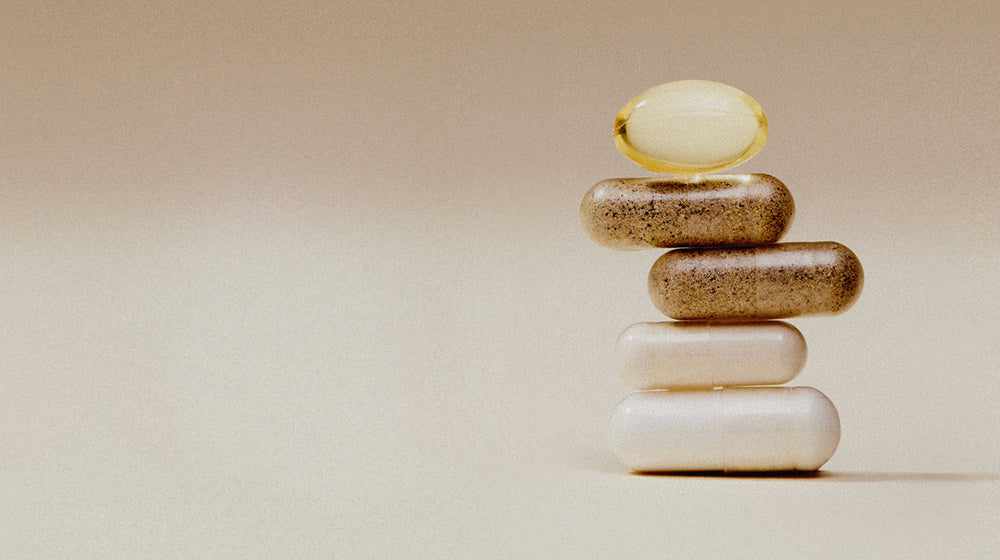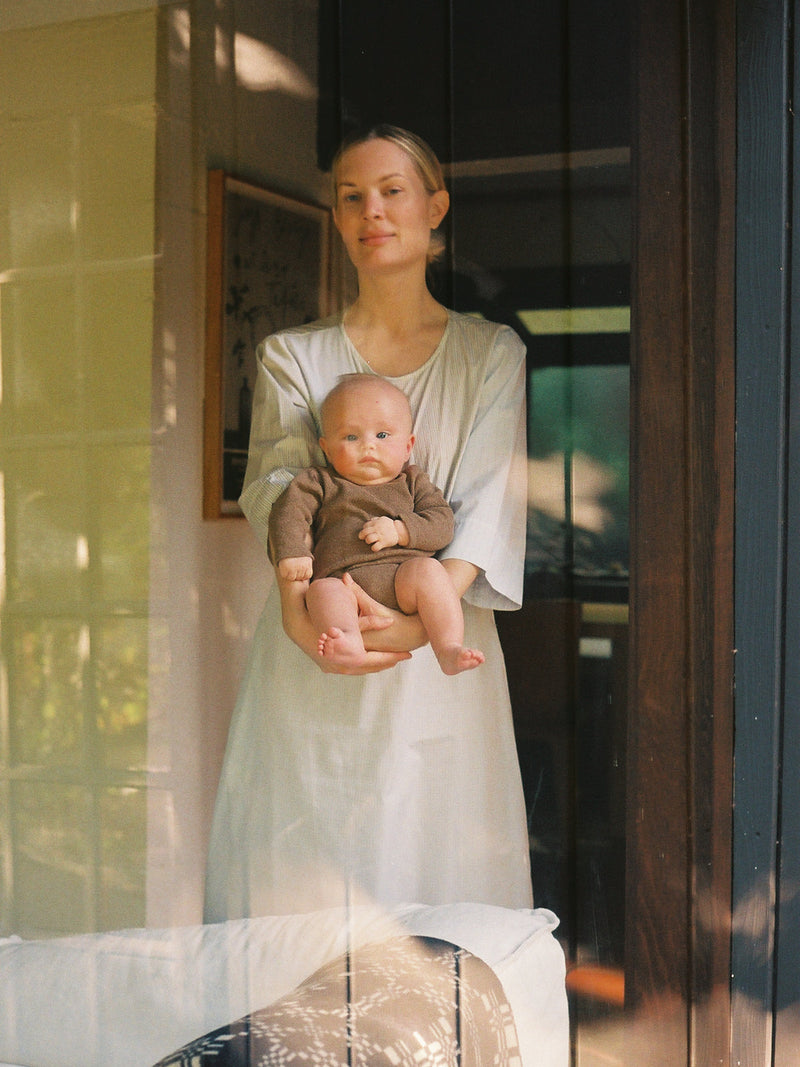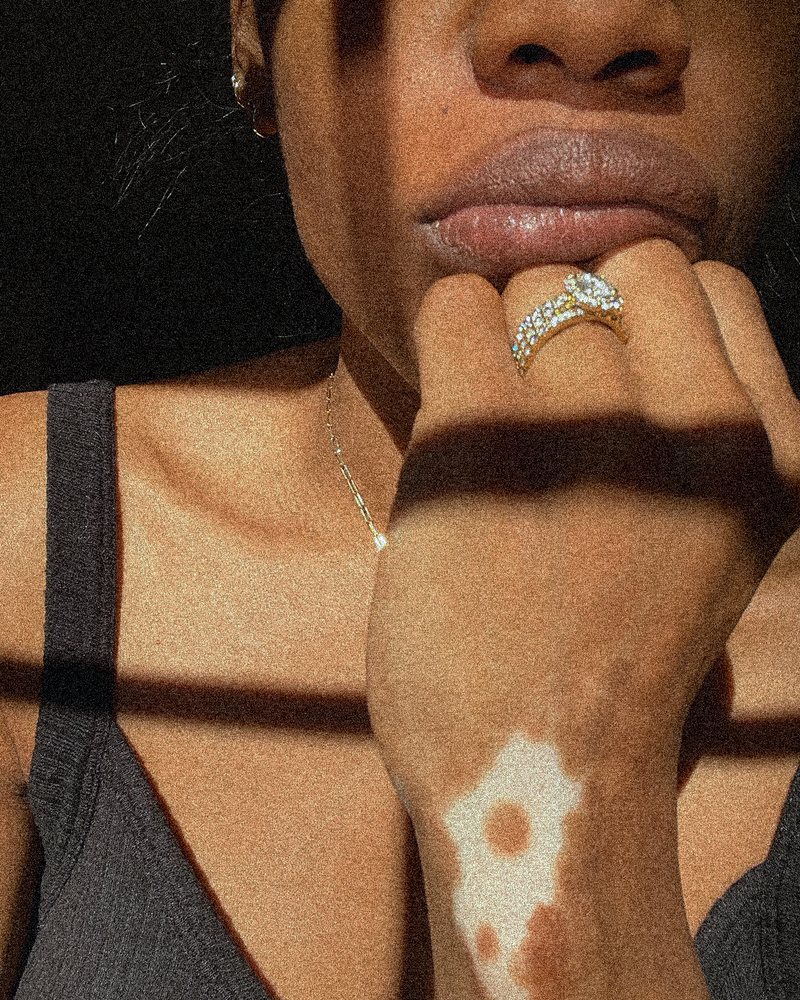We feel each other's pain. We communicate “been there” with a hug. Being a woman is characterized by the shared experiences of what it means to inhabit bodies and navigate conditions that are still clouded with outdated taboos.
Our series But Really, How Are You? is dedicated to shining a light on these stories at the intersection of reproductive and mental health, from postpartum depression and fertility detours to the long fight for an endometriosis diagnosis. Our hope is to bring radical visibility to the struggles that, as women, inherently connect us—but so often go unsaid.
Today, we feature the words of Gloria Noto, artist, creative director, and creator of vegan cosmetics line Noto Botanics.
I was diagnosed with PMDD (premenstrual dysphoric disorder) about a year and a half ago—I’ll soon be 40. It’s a diagnosis that brought a strange mix of relief, clarity, and a deep recognition of what I had been silently enduring for years. Looking back now, I can see the signs were there, even though I couldn’t yet make sense of them.
My menstrual cycle has always been incredibly regular. I know exactly when my period will arrive, almost like clockwork. I always know what day it’s going to start. But my struggle with PMDD wasn’t about irregular periods; it really started more in the mental space. For me, the symptoms of PMDD manifested more in my mind and emotional state. It started as a psychological depression that weighed on me, and grew heavier and heavier over time.

In my twenties, I assumed was just a part of figuring life out—making choices, sometimes not making choices, and discovering who I was. But as I got older, there was a constant voice in my head, a sense of discomfort, like a weight I couldn’t shake off. By my thirties, that weight had intensified, and I began to suspect something more serious was happening. I experienced physical dysphoria, an almost unbearable sense of crawling in my own skin, and a deep dissatisfaction with the world around me. It was more than just stress or unhappiness.
After years of therapy, meditation, and various tools to manage my emotions, I realized that none of it was truly lifting the weight. About a year and a half ago, everything in my life seemed to collide—my sister passed away, I was going through a breakup, and my business was facing a significant shift. I felt like I had hit rock bottom, and that’s when I knew I needed help beyond what therapy or meditation apps could offer. So, I went to a doctor.
I will say, I knew what PMDD was after reading about it, but it took someone I knew being diagnosed before I was like, maybe this is something I have. I explained my symptoms, the emotional spirals, and the physical sensations that overtook me in the days leading up to my period. My doctor listened, and after discussing everything, she diagnosed me with PMDD. Hearing that diagnosis gave me such a sense of clarity and validation. For the first time, I had a name for what I was feeling. And when you kind of give power to that, it’s amazing, though the pain is still there, but the pain feels different because you can put a name to it, in a sense.
PMDD is hard to diagnose because it’s a combination of factors. It can be hereditary, related to inflammation, or tied to low serotonin levels, along with other factors. In my case, it was likely a mix of all three. My family has a history of depression, and I’ve had issues with low serotonin and inflammation in the past. But just knowing that this was a real, diagnosable condition was a game-changer for me.

I decided to start taking an antidepressant, Zoloft, a low dose to help manage my symptoms. The shift was massive, and almost immediate. The spirals weren’t as bad, and I felt more in control of my emotions. But PMDD doesn’t just disappear with medication. I’ve learned that I still need to pay close attention to my body—what I eat, how I take care of myself. I noticed that the months where I didn’t take care of myself as well, the symptoms would creep back in. It’s a delicate balance.
Looking back at my childhood and teenage years, I realize that there were always signs. I was a sad kid, in sort of a quiet way. I had this deep sadness that I couldn’t quite explain, and while some of it was circumstantial—family trauma, struggles with identity—there was also something deeper. It wasn’t just trauma; it was PMDD, but I didn’t know that at the time.
"There’s a stigma around menstruation, and people are quick to dismiss intense emotional experiences as 'just PMS.' But PMDD is more than that."
I wish I had known about PMDD earlier. I wish I could go back and tell my younger self that there was a reason for all the emotional turmoil, that it wasn’t just me being too sensitive or too emotional. It would’ve saved me a lot of guilt and shame. PMDD can make you feel like you’re going crazy, like you want to burn your life down, but knowing that it’s a medical condition can help lift some of that burden.
PMDD isn’t a well-known condition, and many women don’t even know it exists. There’s a stigma around menstruation, and people are quick to dismiss intense emotional experiences as "just PMS." But PMDD is more than that, and it’s important to talk about it. We need to recognize that these emotions, this pain, is real and valid.
Today, I’m in a much better place. The Zoloft has helped, but more importantly, the diagnosis has helped me understand myself better. To have grace for myself. I know that when those dark thoughts come, when I feel like I’m spiraling, it’s not just me—it’s PMDD. And while that doesn’t make the feelings go away, it makes them easier to manage. I’ve learned to listen to my body more closely, to pay attention to the signals it’s giving me, and to take care of myself in ways that help alleviate the symptoms.
If there’s one thing I wish other people knew, it’s that you don’t have to suffer in silence. PMDD is real, and there are ways to manage it. You don’t have to grit your teeth and bear it. There’s help, there’s support, and most importantly, there’s hope.
Learn more about period symptoms and PMDD here. If you're experiencing symptoms of depression or pronounced mood changes, please check in with your medical provider.

theFolio in Your Inbox
Sign up to receive doctor-backed, stage-specific content in your inbox each week.





















